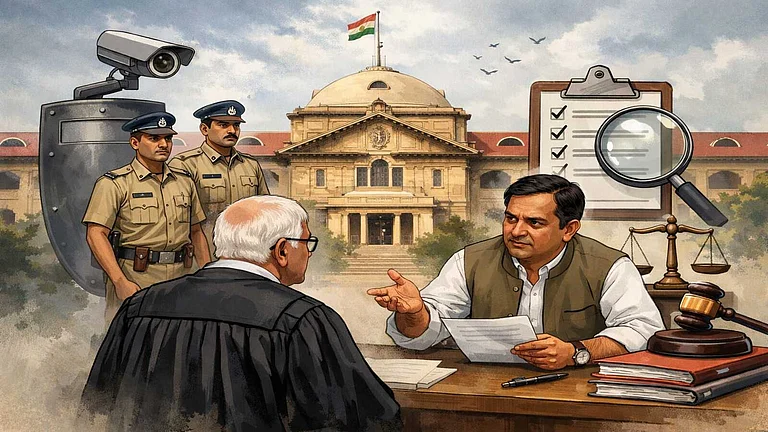If an unauthorised transaction occurs in one's account, it is important to inform the bank as soon as possible through a call, email, or by visiting the branch. Once the crime is reported, it is the bank's responsibility to take necessary and prompt action to minimise the damage. In a recent case, the Allahabad High Court's Justice Shekhar B. Saraf and Justice Praveen Kumar Giri referred to the Reserve Bank of India's (RBI) circular dated July 6, 2017, which lays down rules regarding liability in case of an unauthorised electronic transaction from a bank account. Referring to it, the court said that "The burden of proving the customer's liability in case of unauthorised electronic banking lies upon the bank."
Case Brief
The case involves petitioners (father and son) and respondents (Bank of Baroda (BoB) and RBI). Both petitioners run businesses and have their separate proprietorship firms. They have opened accounts with BoB and taken the net banking facility. They also took a cash credit facility in their accounts for Rs 1.2 crore and Rs 1.3 crore, respectively.
On June 19, 2022, the father transferred a total of Rs 37.85 lakh into his son's account through two internet banking transactions (Rs 30 lakh and Rs 7.85 lakh). But the amount was allegedly further transferred to an unknown account.
On June 21, 2022, the son lodged the FIR, and the father filed a complaint with the bank (BoB), informing them about the embezzlement.
They approached the court when they received no satisfactory response from the bank.
Argument Of Petitioners
The petitioners argued that neither the bank nor the police took any action in the matter despite being informed by the petitioners within 24 hours of the SMS about the transaction. They raised the issue of the involvement of a third party for making the transaction happen, saying that the IP address for this transaction was different from the previous transaction.
Arguments Of Respondents
The respondents' counsel argued that the I.P. address for the said transaction was the same as that of the previous transactions, and argued that the same device had been used for transferring the money. The counsel further said that the son has changed his password after completing the transactions.
Court's Observation
The court observed, "After perusal of the Debit/Credit details as well as I.P. address details, evidently, the petitioners were not the victims of cyber fraud as the alleged transaction had been done diligently by the petitioners themselves."
The court noted that the transaction happened on June 19, 2022, but petitioners reported it to the bank on June 20 and to the police on June 21. It observed the delay as an "afterthought and a concocted story" on the part of petitioners.
It referred to the RBI's circular also to determine the liability of the parties involved, and referring to Rule 12 in the circular, which says, "The burden of proving customer liability in case of unauthorised electronic banking transactions shall lie on the bank."
The Judgement
In its order, the court said, "A careful perusal of the aforesaid circular would show that the burden of proving the customer's liability in case of unauthorised electronic banking lies upon the bank. The petitioners invoked clause 6(ii), but then one has to understand whether the loss occurred due to negligence by the customer. The record shows that the transaction was deliberate and was done by the petitioners themselves."
Notably, in this case, the petitioners alleged the transaction as fraudulent, whereas banks proved them wrong by showing the same I.P. address from which the previous and this transaction were done, and also showed the information about the password change. It also showed that the beneficiaries to whom the funds were transferred were added by the petitioner himself.
"From the perusal of the aforesaid record, it can be discerned that there has been no embezzlement of funds as every transaction was within the knowledge of the petitioners; therefore, the defence taken by the petitioners is not fathomable in the eye of law", said the court and dismissed the writ petition.


















